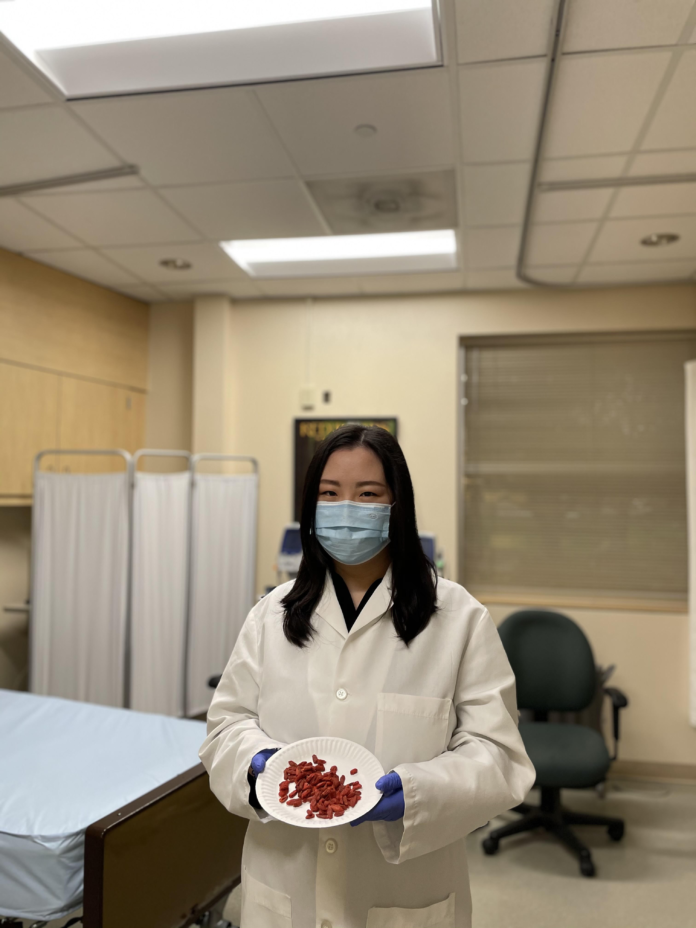UC Davis researchers found that eating only a handful of dried goji berries increases protective pigments in the eye
By MONICA MANMADKAR — science@theaggie.org
Consuming only a handful of dried goji berries can increase the density of protective pigment in the eyes, according to a study by UC Davis researchers. With a regular intake, these berries can help prevent age-related macular degeneration (AMD).
AMD is a disease that can cause central vision loss and affects one’s ability to read and recognize faces. It has affected over 11 million people in the U.S. and is the most common cause of vision loss for older people.
“If we would all live to 300 years old, then we would all have AMD at some point in our lives,” Dr. Glenn Yiu, an associate professor in the Department of Ophthalmology and Life Sciences and a co-author on this study, said. “It’s just that some people, especially those who smoke a lot and have light-colored eyes and skin, are more likely to develop AMD in their life during their sixties and seventies.”
During the small study conducted, researchers found that participants who consistently consumed about 28 grams or a handful of berries for 90 days had an increase in the density of the pigments. According to the study, these pigments, lutein and zeaxanthin, not only protect the eye against AMD but also filter out blue light. They act like sunscreen for the eyes. Meanwhile, the other group of participants, who took a commercial supplement did not see the same increase in density.
“The higher the concentration of these pigments in the eye’s retina, the more protection you have,” Xiang Li, the lead author of the study and a doctoral candidate for the Nutritional Biology program, said. “Their concentration is positively associated with cognitive performance.”
The study initially started with goji berries and their association with traditional Chinese diet and medicine. Li was born and raised in Northern China. Knowing that goji berries have “eye-brightening” qualities, Li was even more interested in researching the benefits of the berries.
“[Goji berries] are very common in Chinese medicine and even in the regular diet, and [they] are usually included in soups, like herbal soups, which are healthy for you,” Yiu said.
Studies showed that the marker macular pigment optical density (MPOD) in the eye is also representative of the concentration of lutein and zeaxanthin in the brain, which means goji berries may also benefit cognitive health.
Goji berries show a lot of promise for future research. However, Yiu noted that this study was quite small and more research is needed to produce more concrete results. The berries increase the macular pigments, which should help decrease the risk of AMD, but there hasn’t been a study yet that quantitatively connects these two.
Written by: Monica Manmadkar — science@theaggie.org







